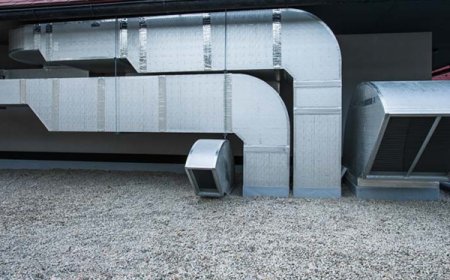Why Skilled Trades Are the Backbone of Every Successful Construction Project
In the world of construction, the spotlight often shines on architects, project managers, and engineers. However, the unsung heroes of any successful construction project are the skilled tradespeople who bring designs to life. From electricians and plumbers to carpenters and masons, these professionals form the backbone of the construction industry. Their expertise and craftsmanship are essential for ensuring that projects are completed on time, within budget, and to the highest standards of quality. This article explores the critical role of skilled trades in construction and why they are indispensable to the success of every project.
The Importance of Skilled Trades in Construction
1. Expertise and Specialization
Skilled tradespeople possess specialized corporate office interior design and training that are crucial for executing various aspects of construction. Each trade requires a unique set of skills, and professionals often undergo years of training and apprenticeships to master their craft. For instance, electricians must understand complex wiring systems and safety protocols, while plumbers need to be adept at installing and repairing intricate piping systems.
This level of expertise ensures that every element of a construction project is handled by someone who knows the ins and outs of their trade. When skilled tradespeople are involved, the likelihood of errors decreases significantly, leading to a smoother construction process.
2. Quality Assurance
Quality is paramount in construction, and skilled tradespeople are dedicated to delivering high standards. Their attention to detail and commitment to their craft ensure that every aspect of the project meets or exceeds industry standards. Whether it’s the precision of a carpenter’s cuts or the meticulous installation of electrical systems, skilled tradespeople take pride in their work.
Moreover, their experience allows them to identify potential issues before they escalate into costly problems. This proactive approach not only enhances the quality of the finished product but also contributes to the overall safety and longevity of the structure.
3. Collaboration and Teamwork
Construction projects are inherently collaborative endeavors. Skilled tradespeople work closely with architects, engineers, and project managers to ensure that the vision for the project is realized. Effective communication and teamwork are essential for coordinating tasks and timelines.
For example, in corporate office interior design, the collaboration between interior designers and skilled trades is vital for creating functional and aesthetically pleasing spaces. Electricians, plumbers, and carpenters must work together to ensure that the design elements are seamlessly integrated into the final product. This teamwork fosters a sense of unity and shared purpose, ultimately leading to a more successful project outcome.
4. Adaptability and Problem-Solving
Construction projects rarely go exactly as planned. Unexpected challenges can arise, from changes in design to unforeseen site conditions. Skilled tradespeople are adept at adapting to these changes and finding solutions on the fly. Their hands-on experience equips them with the ability to think critically and creatively when faced with obstacles.
For instance, if a plumbing issue arises during the installation of a corporate office interior design, a skilled plumber can quickly assess the situation and propose an effective solution. This adaptability is crucial for keeping projects on track and minimizing delays.
The Economic Impact of Skilled Trades
The skilled trades sector is a significant contributor to the economy. According to the Bureau of Labor Statistics, construction trades services employ millions of healthcare interior design across the United States, providing stable jobs and contributing to local economies. The demand for skilled tradespeople continues to grow, driven by ongoing construction projects and the need for skilled labor in various sectors.
Investing in skilled trades not only supports individual workers but also strengthens the overall construction industry. As more people enter the trades, the quality of work improves, leading to safer and more efficient construction practices.
The Future of Skilled Trades
As technology continues to evolve, the construction industry is also changing. Skilled tradespeople are increasingly incorporating new tools and techniques into their work. For example, advancements in building information modeling (BIM) allow tradespeople to visualize projects in 3D, improving accuracy and efficiency.
Moreover, the emphasis on sustainability is shaping the future of skilled trades. As green building practices become more prevalent, tradespeople are learning to work with eco-friendly materials and energy-efficient systems. This shift not only benefits the environment but also positions skilled tradespeople as essential players in the construction of sustainable buildings.
What People Also Ask About Skilled Trades in Construction
1. What are construction trades services?
Construction trades services refer to the specialized skills and expertise provided by tradespeople in various fields, such as plumbing, electrical work, carpentry, and masonry, essential for completing construction projects.
2. Why are skilled trades important in construction?
Skilled trades are crucial for ensuring quality, safety, and efficiency in construction projects. Their expertise helps prevent errors, enhances collaboration, and allows for effective problem-solving.
3. How do skilled trades contribute to corporate office interior design?
Skilled tradespeople collaborate with designers and architects to implement interior design plans, ensuring that electrical, plumbing, and structural elements are seamlessly integrated into the final design.







































































